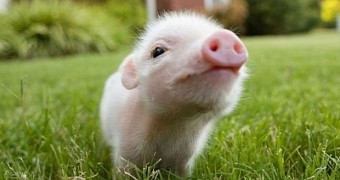Transplant surgeries have come a long way since medical experts first dared attempt such procedures decades ago. These days, it's not so much equipment and techniques that's keeping doctors back, but the fact that human organs suitable for transplant aren't exactly easy to come by.
Hoping to solve this conundrum, scientists are trying their hand at growing animal organs designed not to be rejected by the human immune system. At a recent meeting of the National Academy of Sciences, a team of researchers presented their work growing pig organs for human transplant.
The key is genetic engineering
Strictly from an anatomical standpoint, we humans aren't very different to pigs. All the same, the fact of the matter is pig organs have a unique genetic profile that makes them vulnerable to being attacked by the human immune system.
To get around this hiccup, researcher George Church with the Harvard Medical School in Boston and his colleagues focused on genetically altering pig embryos to such an extent that their genome would no longer be a target for the human immune system, Nature explains.
As it turns out, they succeeded. Thus, the research team say they managed to modify around 60 of the genes that make up the pig genome, which is ten times more than what had previously been edited by other scientists in similar experiments.
What's more, the specialists say that, using a gene-editing technology known as CRISPR, they found a way to inactivate around 62 viruses that are embedded in the pig genome and that could cause disease in humans, should patients receive transplant organs from such animals.
There's plenty of work left to do
As noted, the scientists experimented on pig embryos. The researchers might think that their genetic editing did the trick and turned the lab-made creatures' genetic profile people-friendly, but they are yet to prove that this is really the case.
What the scientists must now do is grow the embryos into actual pigs, harvest their organs and test whether, as they expect, they really are suitable to be transplanted into people.
If the experiments prove successful, the team will show that, with the help of genetic engineering, pigs can become compatible non-human organ donors.

 14 DAY TRIAL //
14 DAY TRIAL //